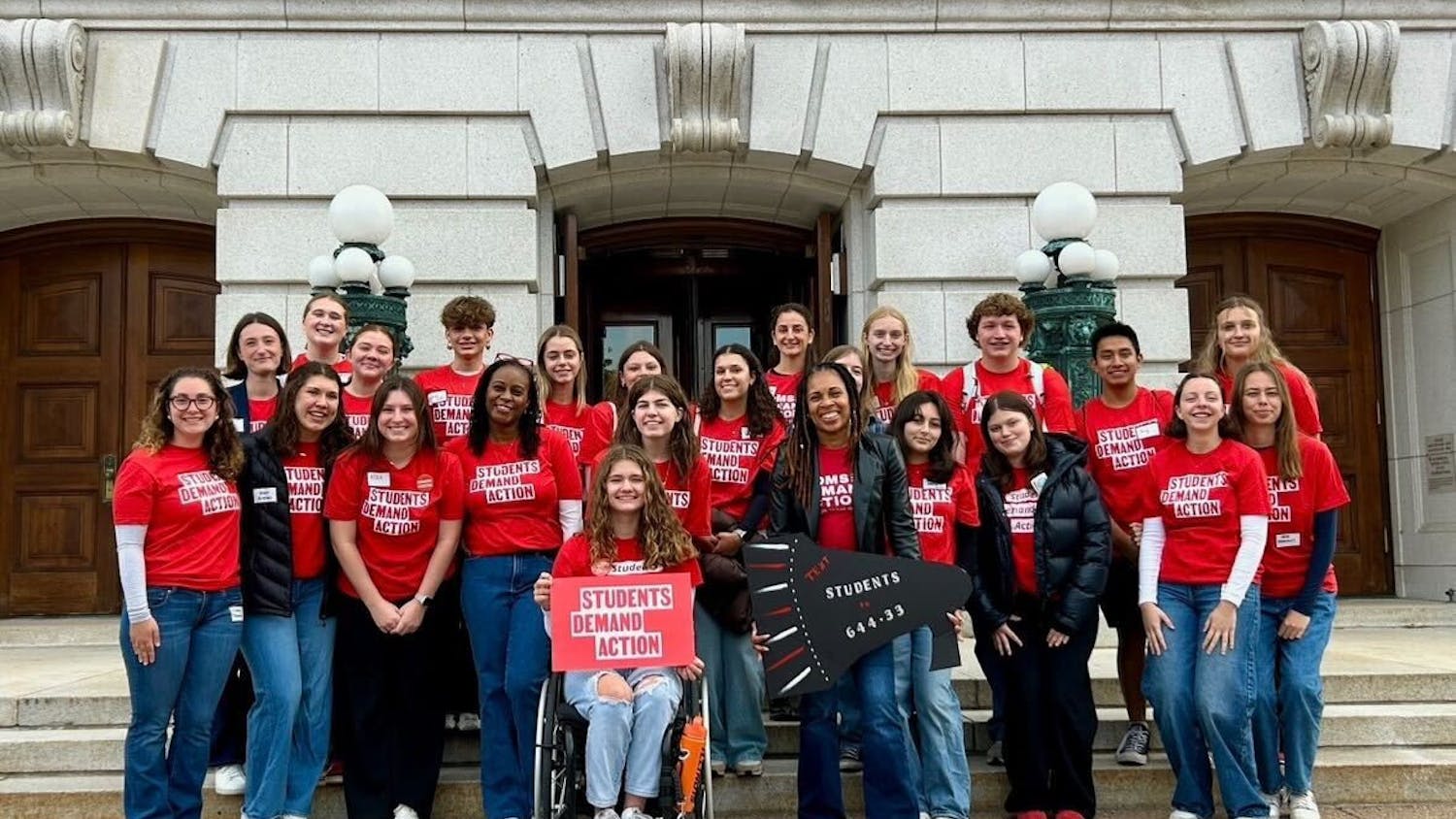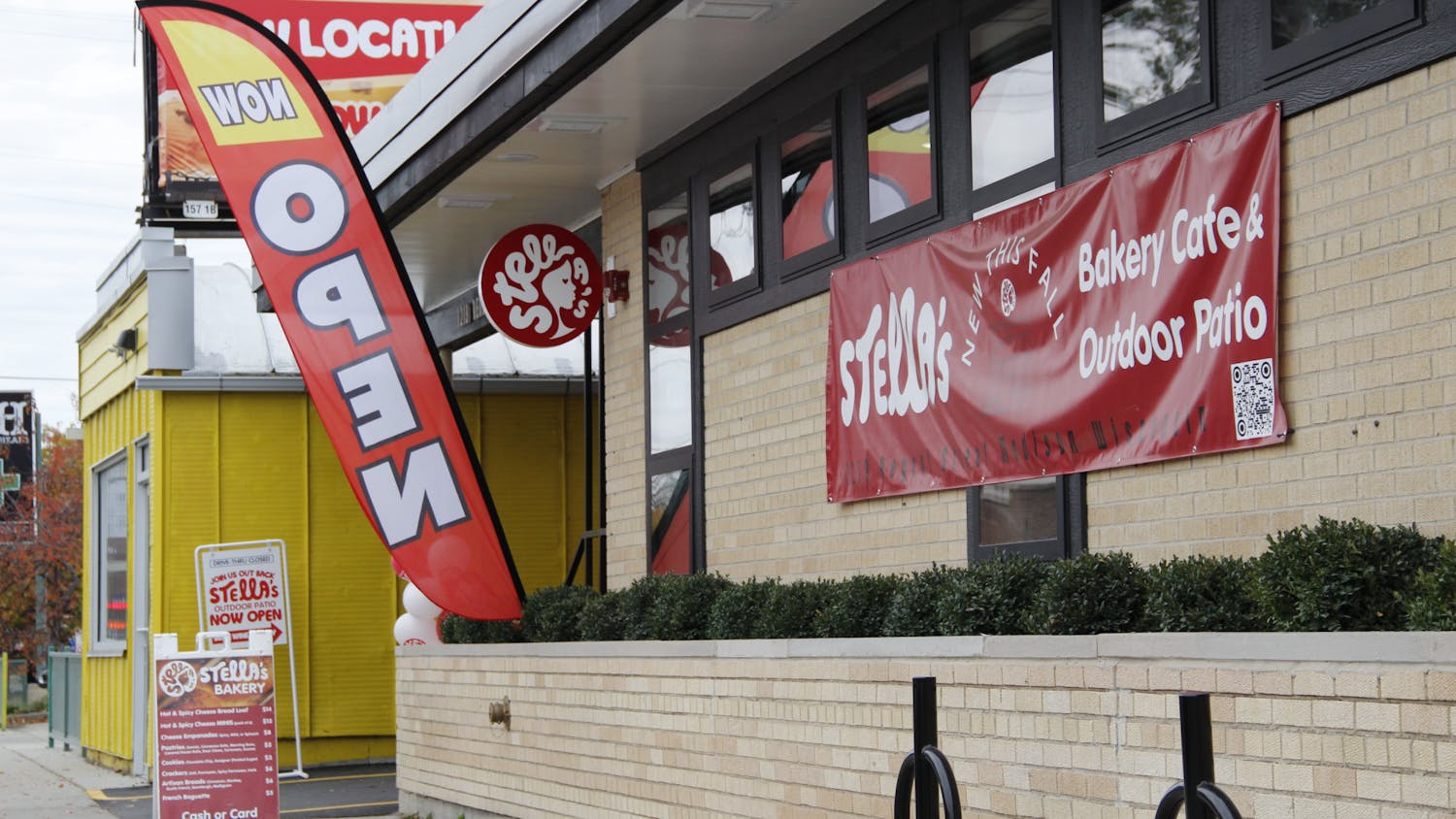Donning a cap and gown, she received her high school diploma and, with the ending of an era, another began. Claudia, who asked to remain anonymous because of the sensitivity of her immigrant status, planned to further her education at the collegiate level. Her goals were similar to many aspiring young adults, but with one difference: she was not born in the United States.
When undocumented students apply to state universities and private and technical colleges, they are classified as non-residents and granted out-of-state tuition. This barrier made higher education financially unavailable to many students who had lived most of their lives in Wisconsin. According to research published by the Urban Institute, an estimated 65,000 undocumented immigrant students graduate from high schools each year. These students have lived in the United States for five years or longer, many brought here at a young age by their parents. In the majority of cases, undocumented immigrants have either entered the country without valid documents or entered with valid visas that have now expired.
Although Claudia, an undocumented student who came with her family to America when she was nine, was accepted to UW-Madison, she could not afford the out-of-state rates.
""It completely brought me down,"" Claudia said. ""It's more than disappointment. It's somebody shutting the door in your face and saying you can't do it.""
If she went to UW-Madison, she would have had to pay for college on her own because undocumented students were ineligible for federal aid and most scholarships because they lack the requirement of permanent residency.
""It's that belief that ‘if you're undocumented, you can't go to college' that makes kids drop out of high school, get into things like gangs, and give up on life because, what's the point? I know this because it happened in my family,"" Claudia said.
On June 29, 2009, Gov.0 Jim Doyle signed the biennial state budget which included a provision granting in-state tuition to qualified undocumented immigrants. Wisconsin was the eleventh state to enact this law, reversing the situation for undocumented students like Claudia and their families as their hopes converted to reality.
""At that point, it seemed unreal,"" Claudia said. ""I'd been waiting all these years for this to happen. I just burst into tears.""
Claudia applied to UW-Madison last spring in hopes that the provision granting in-state tuition to qualified undocumented immigrants would be included in the 2009-2011 state budget. Claudia knew that she had to join the fight and rally support to encourage Wisconsin's state Legislature to include the provision in the budget.
""When I first went to lobby, I was scared,"" Claudia said. ""I was like, ‘Why are they going to listen to me?'""
Voces de la Frontera, a membership-based nonprofit organization in Milwaukee, Racine and Madison that advocates for the rights of low-wage and immigrant workers, inspired Claudia. Claudia said she felt stronger with every testimony given and every demonstration.
""This law is amazing because it gave me hope,"" Claudia said, adding that going to the marches and testifying mattered in the end. ""Even if I can't vote, I can get ten other people to vote. It's so important to let students know that even if they're undocumented they can still get organized and try to change the law because it can be changed.""
This bill struggled at the state level since it was initially introduced by State Rep. Pedro Colon, D-Milwaukee, in 1999. Doyle included the provision in his proposed budget in February 2009. Although both the Joint Finance Committee and the Assembly approved the provision, the Senate Democratic Caucus removed it.
Some opponents of the measure felt it would contribute to Wisconsin's ""brain drain"" if undocumented students graduated and then left the state, according to a May 2009 Milwaukee Journal Sentinel article. Rep. Phil Montgomery (R-Green Bay) previously stated in the article that they should not include the provision because it did not make economic sense for the state.
The Conference Committee returned the provision to the budget. The passing of this law in June 2009 enabled immigrant students to attend state universities and technical colleges paying the same rates as their high school classmates. To qualify, a student has to: live in the state of Wisconsin continuously for at least three years, graduate from a high school or receive a GED in Wisconsin, and present the institution with an affidavit stating that they have or will apply for permanent residency once they are eligible.
According to Colon, this law sent a crucial message to immigrant students who work hard but receive little in return.
""If you don't allow those kids to be educated you will never get the teachers, the nurses, the higher-educated workforce to come back to the city and help those populations,"" Colon said. ""It's just a small reminder to the feds that they have not done their job [regarding] immigration, and they really need to get working on it.""
The 10-year struggle in the state Legislature reflected the controversy that surrounded this issue on a state level. UW-Madison sophomore Bob Nelson, a resident of Illinois, saw the issue from two different perspectives.
""I understand that they're in a horrible situation that they didn't bring upon themselves,"" Nelson said. ""At the same time, it seems unfair to my family and me because I'm an American citizen, and I'd be paying way more than they would be paying and they're not legal citizens.""
Some wonder whether a feasible path to legalization for immigrants even exists. According to UW-Madison community and environmental sociology professor Jill Harrison, because of the constrained legal pathways, very few people can afford to use typical paths to legalization. She said the United States, out of moral obligation, needed to streamline the immigration opportunities that did exist.
""As a nation we need to reconsider what borders mean and how legitimate our current immigration policies are that prevent so many people from coming into the United States,"" Harrison said. ""Some fundamental power imbalances in the global economy privilege those in the United States and make life harder for people elsewhere that in turn drive them to migrate. Because we have responsibility in the migration that happens, I feel that we have responsibility for opening our borders wider than we do.""
According to the research briefing ""Legal Issues Facing Immigrant Dairy Workers in Wisconsin"" published in July 2009 by Harrison, Sarah Lloyd, and Trish O'Kane, it would take roughly 26 years for a Mexican-born immigrant who is not a spouse or minor child of a permanent legal resident to be approved for permanent residency through family-based admission, one of four routes to eventual citizenship.
UW-Madison sophomore Mariana Berbert moved to America with her family when she was 12 years old by request of the American company for which her father worked. Although she came to America over seven years ago, she is a legal permanent resident but is not yet finished the citizenship process.
""The process is annoying, but I feel like I can't even complain because we have so much help,"" Berbert said. ""I can't even imagine what it would be like if we didn't have a really powerful American company asking us to stay.""
According to David Giroux, spokesman for the UW system, the issue for the university is not about illegal versus legal residents, but rather about achieving its goal of educating a strong workforce for Wisconsin.
""We're not talking about inviting people from other countries or other states to come here and get some sort of special treatment,"" Giroux said. ""We're talking about people whose families already live here and who will likely live here in the future. We can either educate and prepare them for a 21st century job or we can leave them out and hold the state back.""
Cindy Breunig, a member of Voces de la Frontera, said immigrants make many positive contributions every day to communities that often go unrecognized.
""This is a small step to say that we recognize your positive contributions,"" Breunig said. ""We welcome and want you here in the state of Wisconsin, and here is opportunity to continue to follow your dreams through higher education.""
Claudia said she wants to inspire others with her achievement.
""I've been waiting so long to say that I'm a UW student,"" Claudia said. ""Now I can motivate other people and it gives them hope. It not only affects the student, it affects the entire family who is fighting for that student. It literally affects the whole community because now these kids have a future and before they really didn't.""






